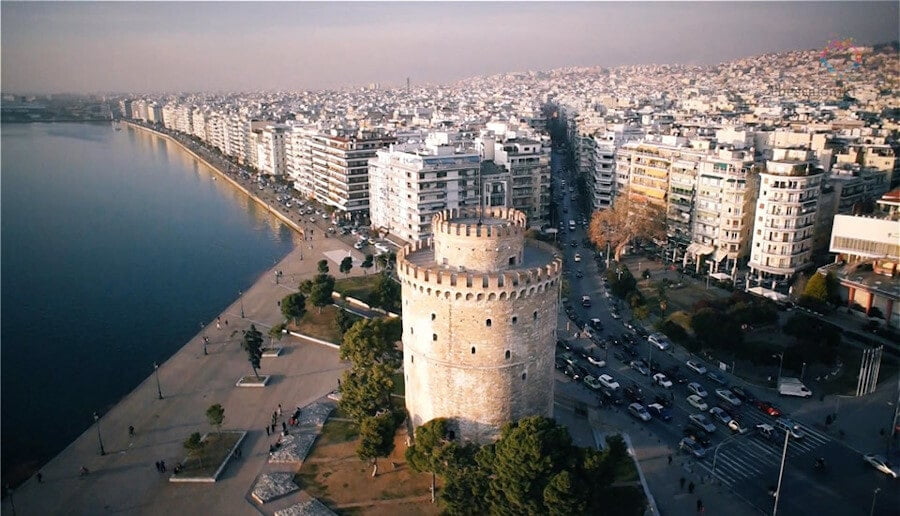From its foundation in 316 BCE by Cassander, one of Alexander the Great’s generals, Thessaloniki was a thriving Hellenistic city up to the era of Ottoman rule. Taking advantage of its strategic position, it developed into a multicultural city. In the 2nd century BCE, it was conquered by the Romans and was the seat of the province of Macedonia. The Egnatia Highway, completed in 120 BCE, joined Constantinople to today’s Albanian town of Durres to become the most important connector of East and West and one of the ancient world’s largest military and commercial roads.
In the Byzantine era, Thessaloniki was the Empire’s most important city after Constantinople and was conquered by the Ottoman Empire for nearly five aeons since 1432; in 1492 witnessed the arrival of the Jews who were expelled from the Iberian peninsula, producing a thriving Jewish community, which the Nazis decimated during WWII. Since becoming part of the modern Greek state in 1912, it has been Greece’s second most populous city.
The city has monuments from its entire history, symbolized by the White Tower, a 15th-century work of Ottoman construction. Other significant monuments include the Roman Agora (forum), the Arch of Galerius in Kamara, Emperor Galerius’ mausoleum (The Rotunda- St. George), the Church of St. Demetrios, city walls and numerous Byzantine churches. The city is also notable for its museums. In 2005, the Museum of Byzantine Culture was awarded the Council of Europe’s Museum Prize.
Mustafa Kemal Atatürk, the founder of the modern secular Turkish state, was born in Thessaloniki in 1881 in a house on Apostolou Pavlou Street, directly behind the Turkish consulate. Today, it is a museum dedicated to his life.
Gastronomy
For food connoisseurs, Thessaloniki offers endless restaurants and taverns offering excellent cuisines. Nothing binds the multi-ethnic character of Thessaloniki quite like its food. From its Frankish and Ottoman conquerors to its Arab traders and population of Jews fleeing the Spanish Inquisition to the early 20th-century population exchange with Asia Minor, Thessaloniki’s unmistakably Greek yet incredibly diverse history has produced an equally rich cultural identity. And to know it all, you have to eat it all.
The gustatory landscape of Thessaloniki is characterized mainly by the ouzo taverns with their meze, and the restaurants which emphasize northern Greek specialties. There is no shortage of ethnic restaurants, pubs, bar restaurants, and the most gourmet venues – some even in hotels and museums. Fast street snacks also have a variety: from the classic koulouri of Thessaloniki (ring-shaped bread stuffed with whatever you can imagine) and the bougatsa with cheese or cream to the many souvlaki shops. In addition, traditional patisseries, as well as new bakeries, will make you stick to their windows!
Classic sweet flavours are the ‘Panorama triangles’ (with cream or chocolate), stuffed tsoureki, the politika (of the Polis, as Constantinople / Istanbul is also known) sweets (kazan dipi, ekmek kataifi etc.) as well as the siropiasta.




